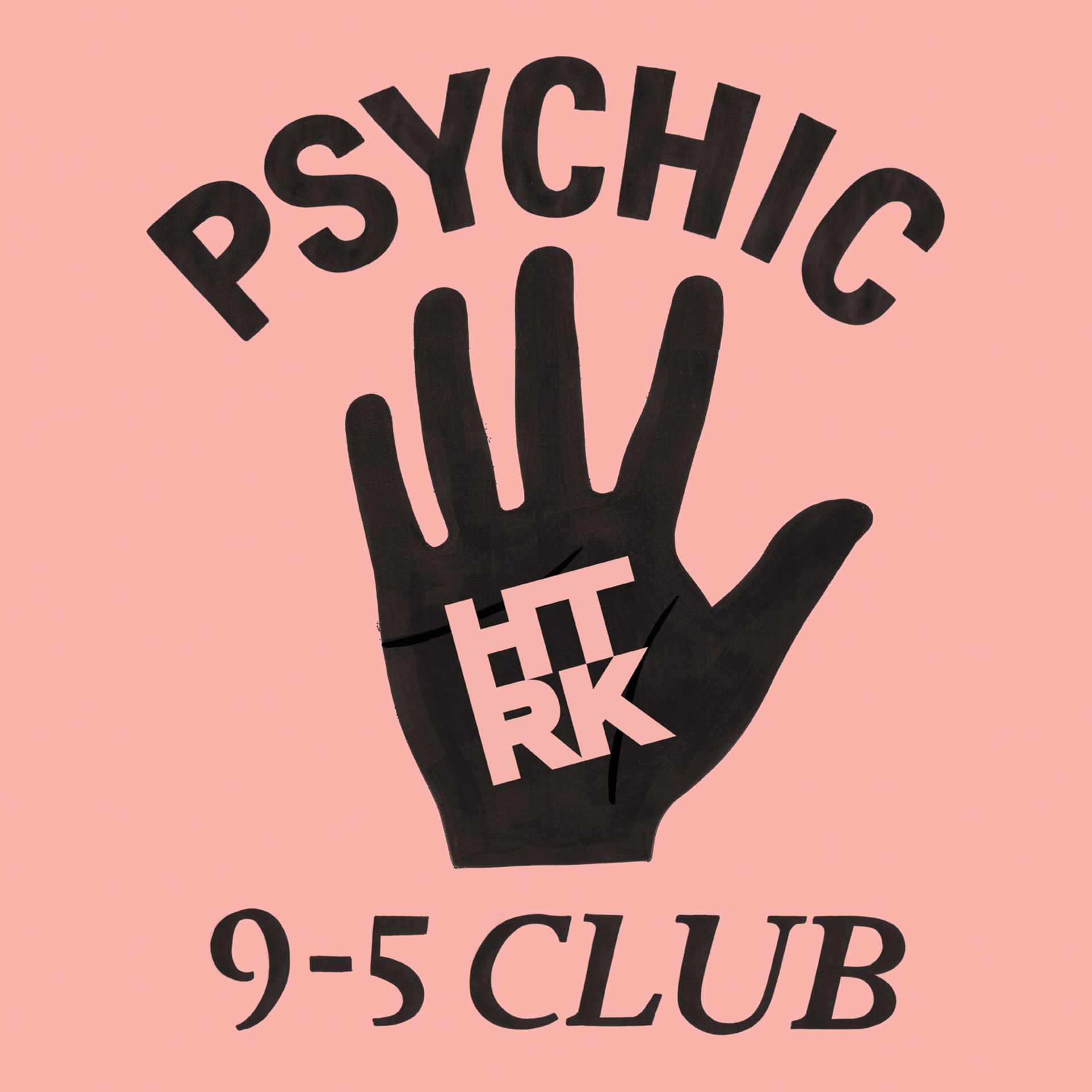
Daniel Jones recommends HTRK’s Psychic 9-5 Club
On their third album (and their first as a duo), Australia’s HTRK have emerged from the darkness that shrouded their previous work into a land of hope—albeit tinged with the groups trademarked sinister sleaze, says Daniel Jones.
Back in 2011, it was impossible to listen to HTRK’s second LP Work (work, work) without getting a sense of just how hard a time the beginning of this decade was for the band. In the mid-2000s, the Australian trio had been picking up steam following the release of their debut album Marry Me Tonight. After so many years of suffering boring post-punk Joy Division variations, I felt like I’d finally found something fresh, a good balance of dubby aloofness and art-pop sensibility. It was even produced by The Birthday Party’s Rowland S. Howard, for that extra touch of street cred. But after HTRK bassist Sean Stewart took his own life in 2010, there was a palpable sense of entropy hanging over the band—a feeling of loss that draped the subsequent Work (work, work) like a shroud. Its sluggishness and icy beats and synths struggled to exist beneath suffocating bass and Jonnine Standish’s plaintive vocals, aurally akin to Sade having an orgasm while drowning. In the right mood, the album was narcotic, the stuff of equally beautiful and disquieting dreams. Pitchfork hated it.
Psychic 9-5 Club is the first album Standish and Nigel Yang have recorded entirely as a duo, and while the atmosphere is just as glacial, the feeling of pain is lightened, less raw. Gone also is that feeling of decayed substance, a sheen of emotional armor growing over it that speaks of healing, of learning to love the world around you once more. Love has been the lyrical theme that has remained the most constant throughout HTRK’s eleven years of existence. In the past it was expressed through coerced and soured fucks, late-night phone sleaze and junkie arm-poetry. Psychic 9-5 Club on the other hand knocks back the nihilism somewhat and stitches up some of the blown-out holes, making room for hope in the once lost souls of HTRK’s sonic worlds. The eight tracks here are filled with fresh air that provide each element with more room to breathe and the music to spread out across the mind leisurely, rather than in a long smear of psychological decompression. The framework behind the productions of Psychic 9-5 Club is still fairly skeletal, but there are so many layers of gauzy synths that the tracks always manage to feel vast, which fits the openness to new genres. Psychedelic organs chime between ethereal oscillations and dreamlike tropicalia makes me nostalgic for chillwaves gone by. The mostly instrumental “Feels Like Love” is downright playful at moments, even featuring honest-to-god laughter—not the malicious scorn of a dominatrix, but more the exhalation you might give upon waking in bed with a new lover, slowly awakening in a tangle of blankets.
Indeed, Standish’s vocals are one of the highlights of the album. Where Work (work, work) had them barely peaking above the rest of the instrumentation, here they’re allowed to shine. Standish has, paradoxically, one of the most expressive monotones I’ve ever heard, and is able to wring two vastly different emotions out of the slightest change in inflection. The whole time I was listening to the album the edges of my mind were flicking at my barely-used Pop Recognition switch, especially during “Blue Sunshine” and “Wet Dream”. The latter’s choir-of-one vocal refrain “I’m in love with myself” pretty much makes it the perfect modern goth song. There’s also a whole lot of Sade up in there, as well as Dido, Nico, and Chris Isaak—all masters of the slow-burning torch song. While HTRK are quick to get the “industrial” tag, to my ears they’ve always been far closer to Marc Almond than Marc Heal.
Some of the descriptors I used for Work (work, work) sound like criticism, but it’s the complete opposite. I love music that makes me feel as though I’ve been dropped into an abyssal k-hole, and that focuses heavily on intense moments of despair (if not outright celebrating it). But I’ve also learned that extended wallowing leaves me feeling extremely empty. Standish and Yang have managed to find a balance between the two that still evokes the bittersweet pleasure of exploring emotional wreckage, while strengthening the healing that comes after. The scars may still show, but the wounds always close eventually—provided one keeps from picking at them. ~
Psychic 9-5 Club is out today via Ghostly International.
Published April 01, 2014. Words by Daniel Jones.
